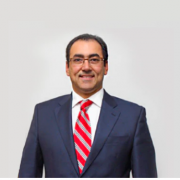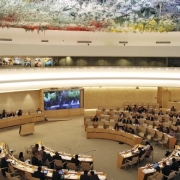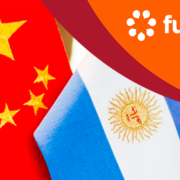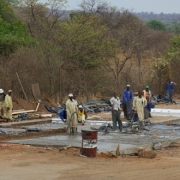Brothers be united? Profiling of the Sino-Argentina relationship in the government of Alberto Fernández
After the Mauricio Macri government will use the acquisition of debt with multilateral credit organizations as the main source of financing for its management, prioritizing the relationship with the International Monetary Fund and the United States government, it is prudent to ask ourselves: What has been the China’s role in this scenario? How is the relationship with the Asian giant outlined in the new government of Alberto Fernández?
“Below, we offer a google translate version of the original article in Spanish. This translation may not be accurate but serves as a general presentation of the article. For more accurate information, please switch to the Spanish version of the website. In addition, feel free to directly contact in English the person mentioned at the bottom of this article with regards to this topic”.
Since the consolidation of China as an influential player in the international system and one of the main economic powers, Argentina has had a relationship with ups and downs but in constant communication. The use of China as a counterweight actor against the constant influence of the United States is not a strategy used only by Argentina, but also by most of the countries in the region.
In this geopolitical scenario, China presents itself as an actor that cannot be ignored beyond the efforts of the West. However, the Mauricio Macri government slightly changed the trend that had been prevailing during the Cristina Fernández government, which could be described as almost preferential.
During the Macri government, relations with China have gone from having a strong bond to going through some ups and downs, since the beginning of the administration, the closest approach to the United States tended to a distance with China. This was reflected in the reconsideration of agreements previously signed during the previous government, which implied a pause in several projects. The guiding idea of the foreign policy of the then President Mauricio Macri was “the reintegration of Argentina in the world” which involved giving a more relevant role to multilateralism. From there, the various international tours and the search for support in the world produced a departure with the Chinese giant with whom he had a very deep strategic cooperation agreement.
Faced with the exhaustion of international credit and the inevitability of the link with China, in the middle of his term, Macri resumed the dialogue interrupted for two years and continued with the stage of deepening the strategic cooperation proposed by the Fernández de Kirchner government, with the Holding of the G20 Summit in Argentina and new modified cooperation agreements were signed. By the end of the term, the relationship had already been fully resumed, which was evidenced in Argentina’s attendance at China’s main initiative in Latin America in the Strip and the route, and 16 cooperation agreements were signed between the two countries. Finally, in June 2017 Argentina is outlined as a potential non-regional member to the Asian Investment and Infrastructure Bank -AIIB- along with other Latin American States, in order to find financing for the country’s large public infrastructure works such as dams in Patagonia .
In this context, the government receives President Alberto Fernández, who is also going through an exceptional situation of public health emergency due to the COVID-19 pandemic. The truth is that, months after his administration began, Fernández had to decide who would be the Argentine ambassador to China, a decision that would indicate the course of action of foreign policy with the Asian country. Fernández’s decision was innovative since he appointed Luis María Kreckler, a career diplomat with a career in embassies such as Brazil and Germany, as Argentine ambassador to China and as political advisor to the embassy along with Sabino Vaca Narvaja, renowned political scientist of the Program of Sino-Argentine Cooperation and Linking from the National University of Lanús and academic specialist on China.
From this designation it is observed that the Fernández government seeks a balance in the relationship with China, that is, the maintenance of a strategic association with the Asian giant but without reaching full dependence. The appointment of a diplomat with a career as Kreckler may imply prudence when proposing a foreign policy strategy that generates an international balance of political interests that may be presented by political scientist Vaca Narvaja.
For his part, President Fernández has declared that China’s role in the global order is inescapable and that during his term he will seek to deepen the Comprehensive Strategic Association that could be extended to the Belt and Road Initiative.
For the moment, the incipient government of Alberto Fernández, which has barely gone through 100 days of administration, has already had to manage a national health emergency crisis by COVID-19, and an economic emergency due to the still pending negotiation with the IMF. . In this context, everything that does not qualify as an emergency is automatically displaced from the government’s priorities. However, the relationship with the Asian giant has been strengthened with the donation of medical supplies from the Chinese government to Argentina in the framework of the bi-national cooperation established in the face of the COVID-19 pandemic.
Likewise, when it comes to the People’s Republic of China, it is recognized that the symbolic has the same relevance as the economic. For what no less data has been the message contained in the input boxes from China where the famous quote by Martín Fierro written by José Hernández was found: «The brothers be united because that is the first law. Have true union at any time. « Although nuances can be expected in the relationship with the Asian giant, one thing is certain, the Alberto Fernández government is determined to strengthen the bilateral relationship, so we must wait to know at what cost it will be.
More information
- The economic and commercial relations between China and Argentina in the era of Mauricio Macri – Lin Hua (2017)
- Overview of Chinese investments in Latin America – GREFI (2016)
- China-Argentina relations under the Macri administration: do we change? -Fundeps (2017)
- Alberto Fernández explained why it is key to enhance the bilateral relationship with China – El Cronista (2020)
- Coronavirus in Argentina: a shipment arrived with Chinese donations for the Ministry of Health – Clarín (2020)
Author
- Florencia Harmitton
Contact
- Gonzalo Roza, gon.roza@fundeps.org





